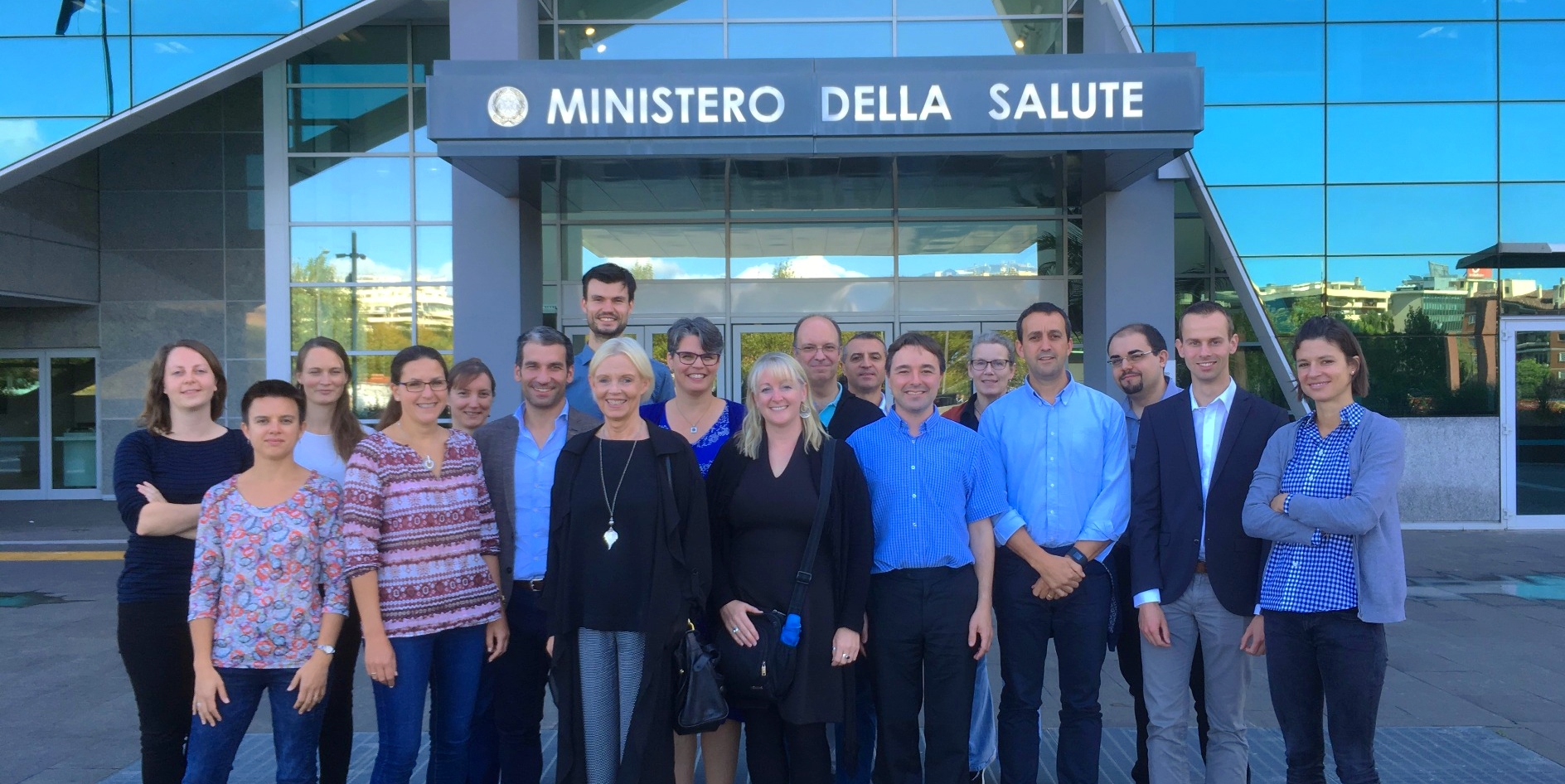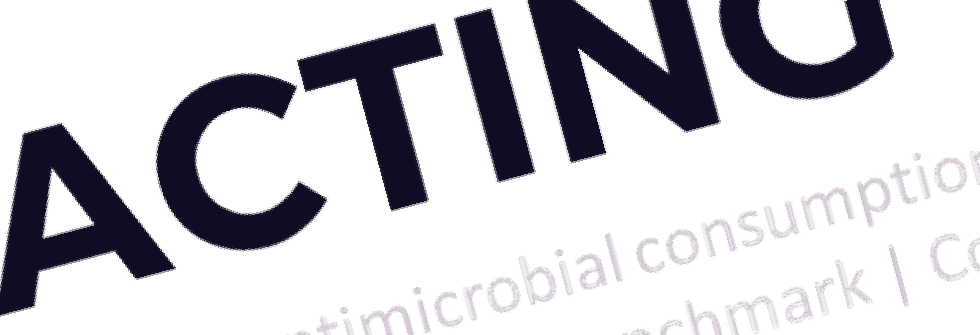AACTING-network and AACTING-project
AACTING is short for the "Network on quantification of veterinary Antimicrobial usage at herd level and Analysis, CommunicaTion and benchmarkING to improve responsible usage".
The network originates from several informal meetings of people from various countries professionally involved in those topics. The initial aim of the meetings was to exchange information and to learn what was being done and by whom in these countries.
Later, funding for a one-year AACTING-project (from 1st March 2017 until 28th February 2018) was obtained through the Joint Programming Initiative on Antimicrobial Resistance (JPI-AMR).
The network originates from several informal meetings of people from various countries professionally involved in those topics. The initial aim of the meetings was to exchange information and to learn what was being done and by whom in these countries.
Later, funding for a one-year AACTING-project (from 1st March 2017 until 28th February 2018) was obtained through the Joint Programming Initiative on Antimicrobial Resistance (JPI-AMR).
The background of the AACTING-project was the general recognition that antimicrobial usage (AMU) is the main driver for the selection and spread of antimicrobial resistance (AMR), and, therefore, that AMU has to be reduced. But to allow for an approach targeted on the highest or most problematic users and to be able to evaluate the effect of AMU reduction measures and responsible use campaigns, availability of adequate AMU data is important. So, many countries have set up or are starting to set up systems for monitoring AMU data at farm level in all or selected food producing animal species. In countries where such systems have been established, the collected data proof to be powerful tools for antibiotic stewardship, e.g., stimulating a reduced and more responsible AMU through communication of benchmarking results of farmers' and veterinarians' AMU.
Yet, AACTING recognised that due to a lack of standardization among the monitoring systems, in terms of collection procedures, analysing methodology (e.g., units of measurement and indicators) and benchmarking strategies (e.g., Different benchmark criteria for acceptable or problematic use), the produced outcomes are typically not comparable. Furthermore, countries or organizations setting up a monitoring system will experience similar challenges to deal with and similar choices to make.
The main aim of the AACTING-project therefore was to develop guidelines with practical advises on setting up systems for collection of AMU data at farm level that are applicable to guide antimicrobial stewardship. In addition, a review of existing systems for the collecting and reporting of farm-level AMU data is being established based on an analysis of strengths and weaknesses of the different systems. A third aim was to build this AACTING-website, where the guidelines and information on currently existing systems is made publicly available. A final aim of the AACTING-project was to organise an International Conference on these topics, to disseminate project outcomes and discuss further developments and challenges.
Participants
Current members
- Belgium
- Jeroen Dewulf, Ghent University (former project coordinator)
- Wannes Vanderhaeghen, AMCRA Data Analysis Unit
- Austria
- Walter Obritzhauser, veterinarian
- Klemens Fuchs, Austrian Agency for Health and Food Safety
- Annemarie Käsbohrer, University of Veterinary Medicine, Vienna
- Clair Firth, Vetmeduni
- Canada
- Carolee Carson, Public Health Agency of Canada
- Richard J. Reid-Smith, Public Health Agency of Canada
- David F. Léger, Public Health Agency of Canada
- Agnes Agunos, Public Health Agency of Canada
- Czech Republic
- Lucie Pokludová, Institute for State Control of Veterinary Biologicals and Medicines
- Denmark
- Mette Ely Fertner, Kopenhagen Fur
- Birgitte Borck Høg, Technical University of Denmark
- Vibe Dalhoff Andersen, Technical University of Denmark
- Laura Mie Jensen, Danish Veterinary and Food Administration
- France
- Anne Hémonic, IFIP-Institut du porc
- Claire Chauvin, ANSES
- Germany
- Roswitha Merle, University of Berlin
- Annemarie Käsbohrer, BfR
- Ireland
- Edgard Manzanilla, Taegasc
- Italy
- Federico Scali, Istituto Zooprofilattico Sperimentale Lombardia Emilia Romagna “Bruno Ubertini”
- Alborali Giovanni Loris, Istituto Zooprofilattico Sperimentale Lombardia Emilia Romagna “Bruno Ubertini”
- The Netherlands
- Dick Heederik, Utrecht University
- Inge Van Geijlswijk, Utrecht University
- Pim Sanders, Utrecht University
- Norway
- Kari Grave, Norwegian Veterinary Institute
- Kari Olli Helgesen, Norwegian Veterinary Institute
- Sweden
- Marie Sjölund, SVA
- Switzerland
- Cedric Muentener, University of Zurich
- Stéphane Blatti-Cardinaux, Federal Food Safety and Veterinary Office FSVO
- Katharina Stärk, SAFOSO
- UK
- Stacey Brown, Veterinary Medicines Directorate
- Fraser Broadfoot, Veterinary Medicines Directorate
Sign up for the AACTING newsletter
If you want to be updated about the activities of AACTING and the programme of the upcoming and future conferences, sign up for the newsletter.
The AACTING consortium during an intermediate 2017 meeting in Rome:


